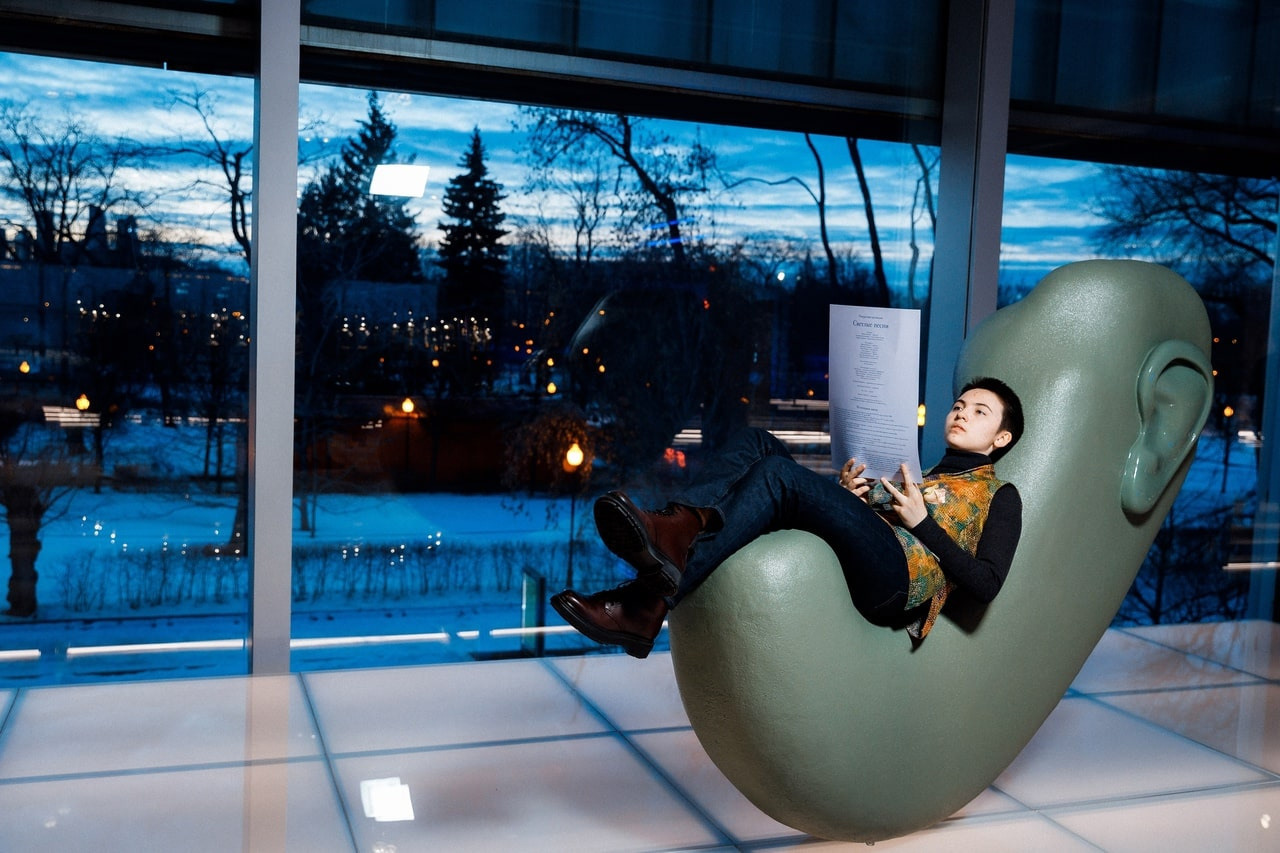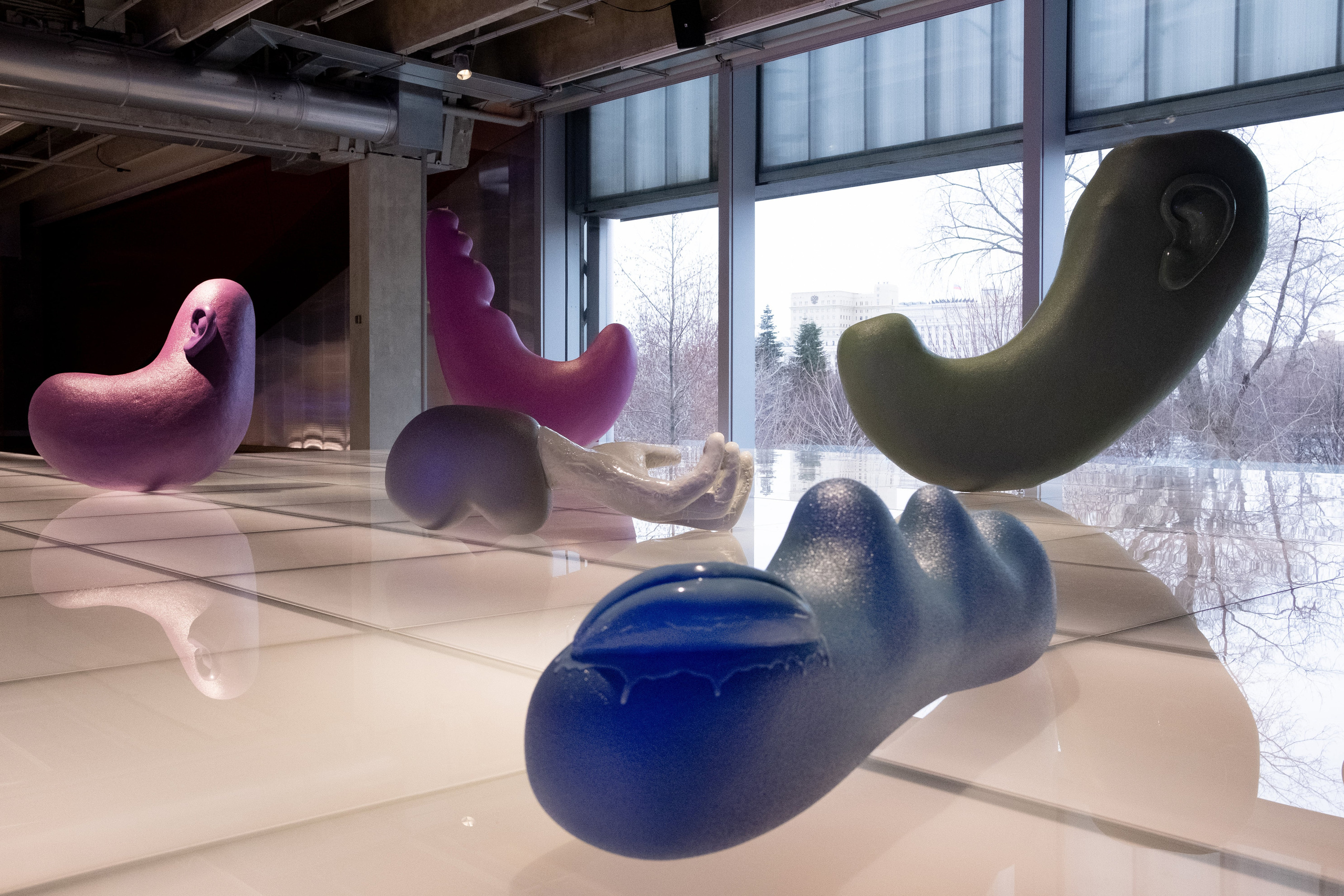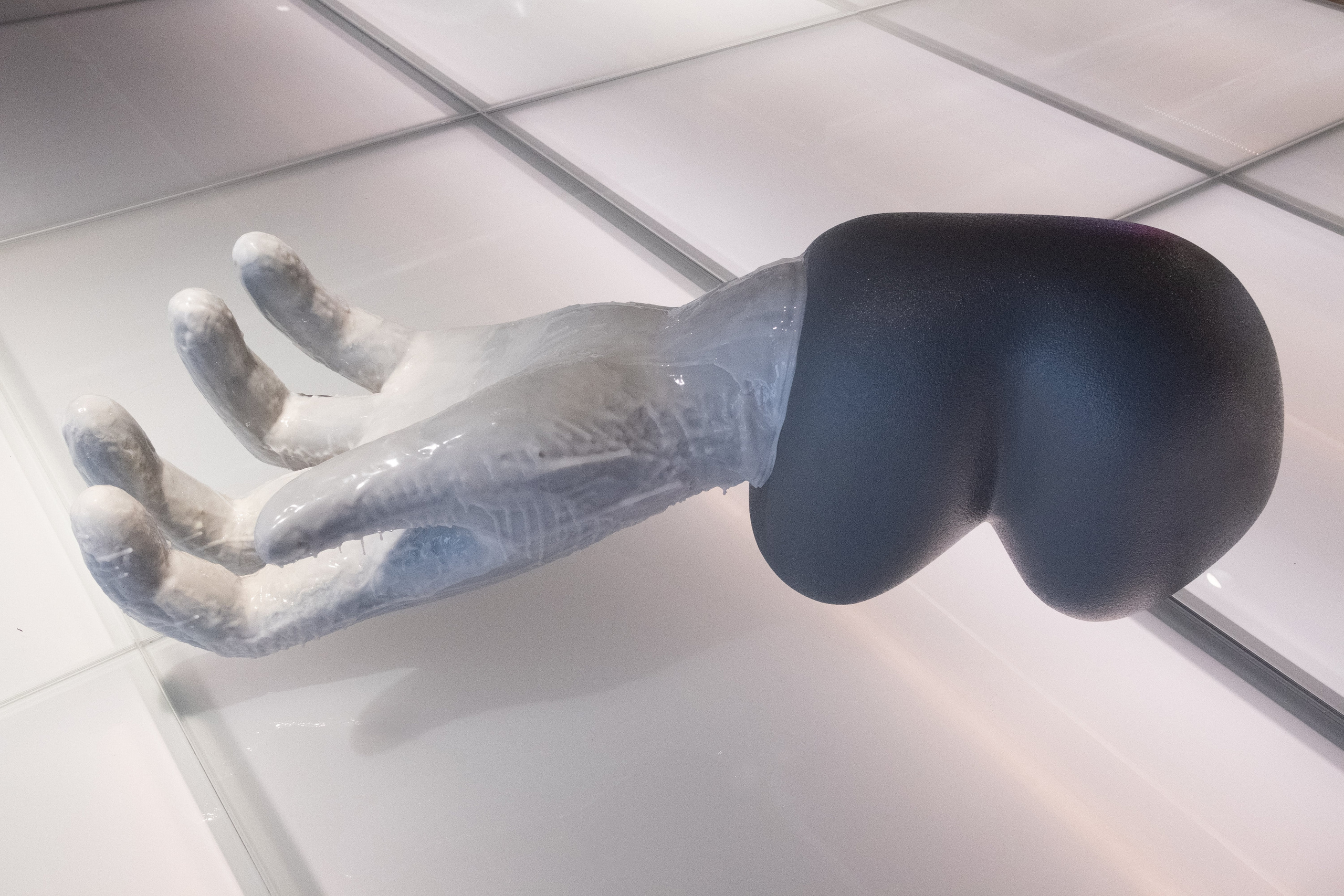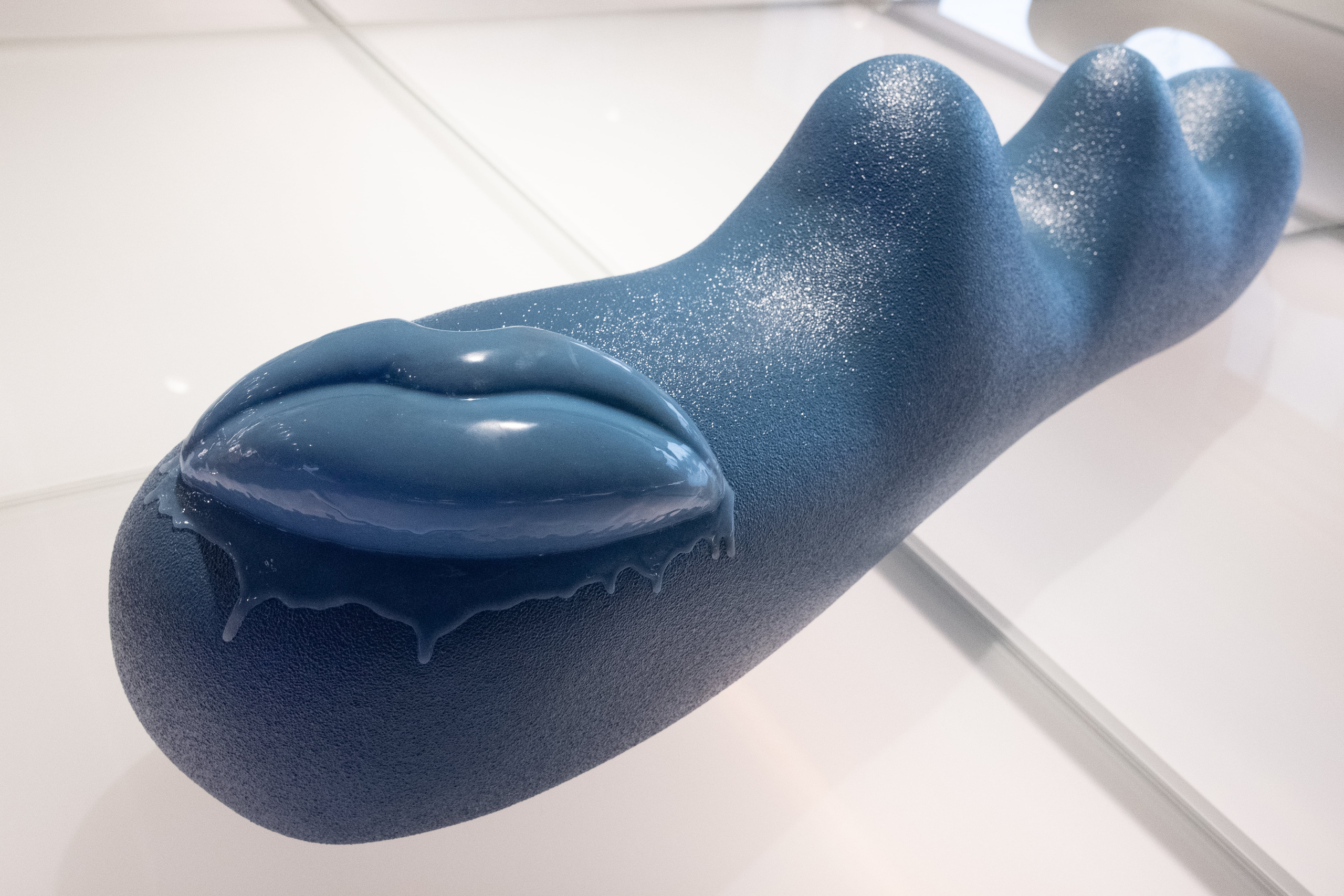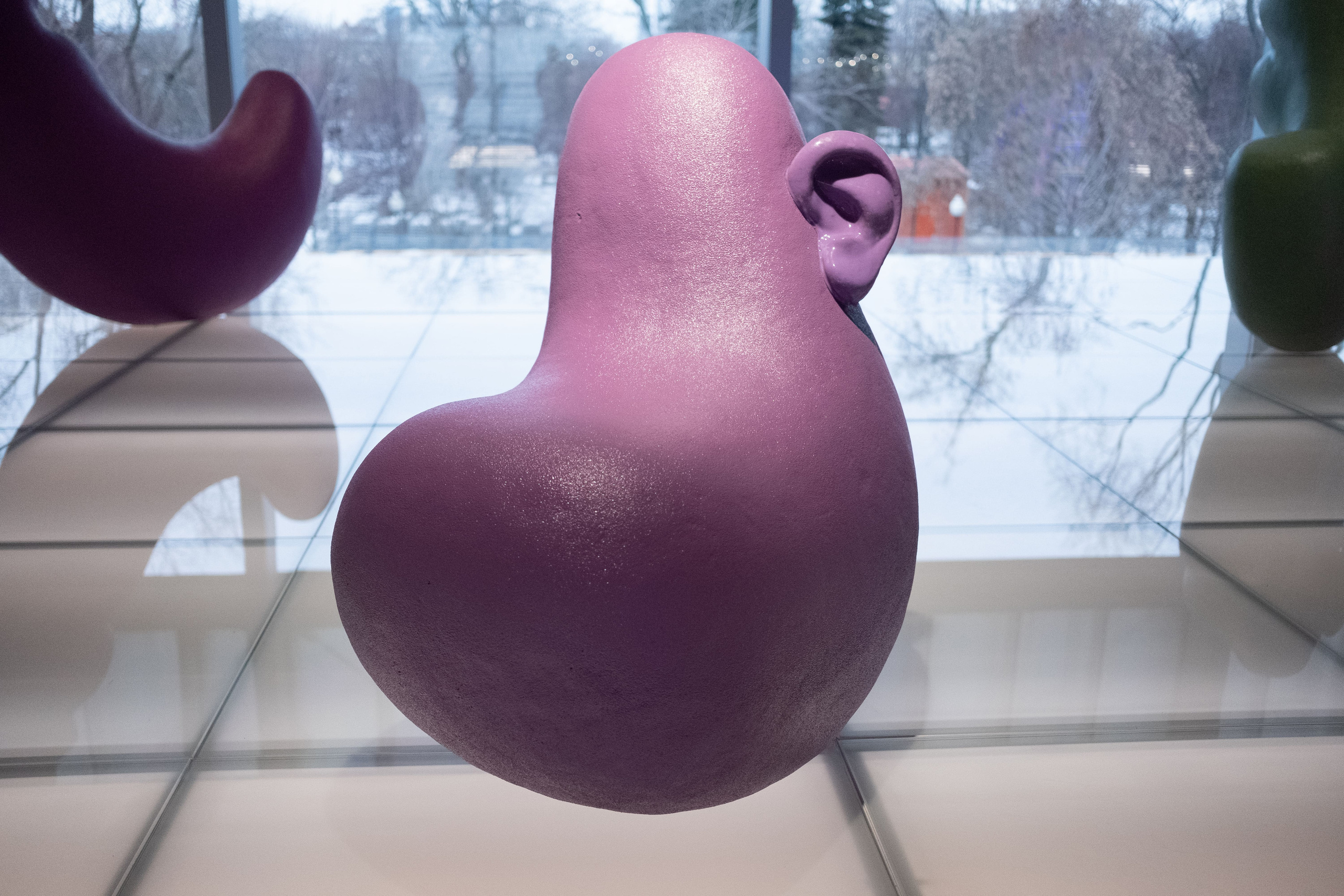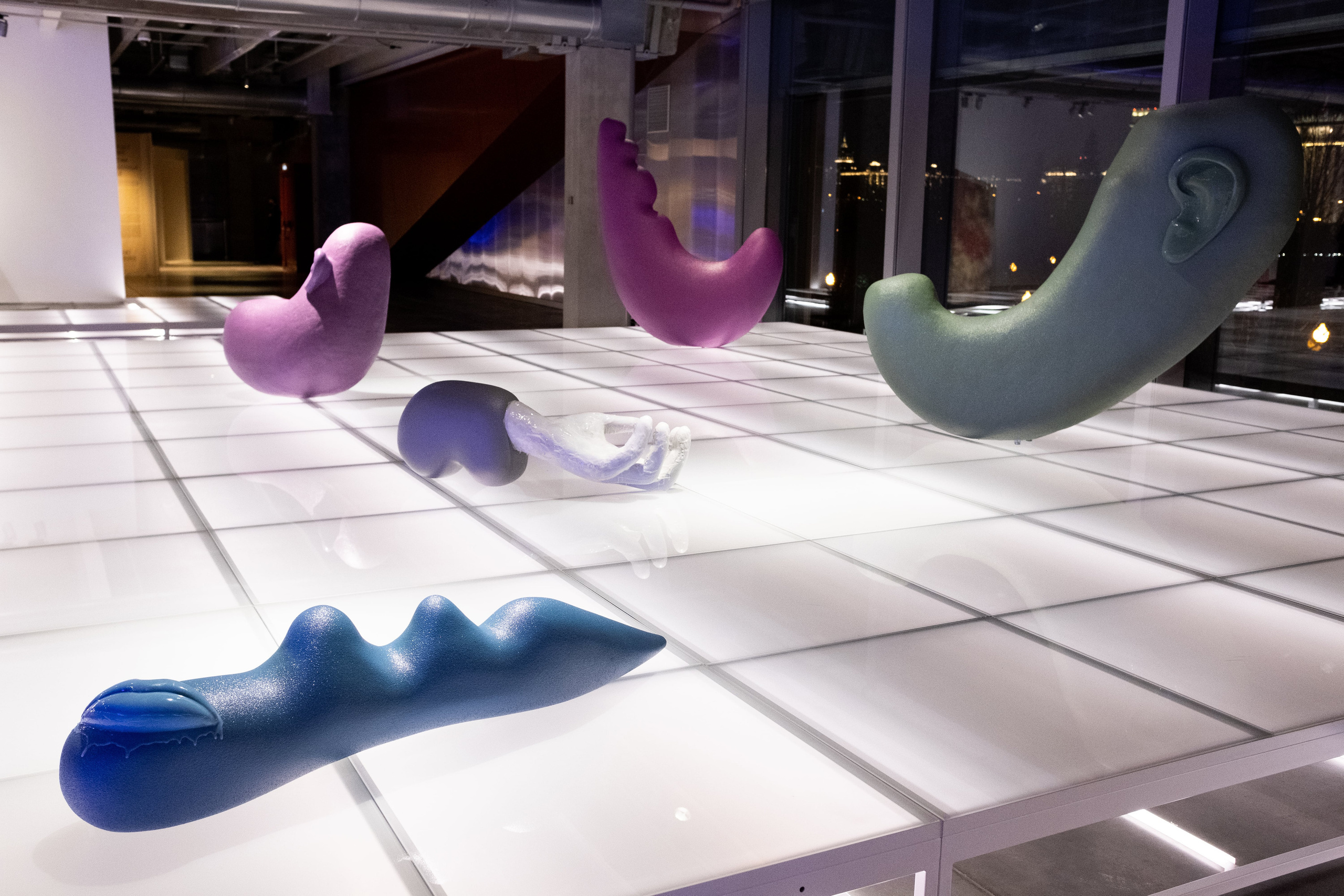Simple Songs
2021
Artists: Marina Karpova, Maria Morina, and Katerina Sokolovskaya
Four-channel audio installation (30’), sculptural group (polystyrene foam, plastic, silicone, concrete), libretto
Dimensions variable
Assuming Distance: Speculations, Fakes, and Predictions in the Age of the Coronacene, installation view, Garage Museum of Contemporary Art, Moscow, 2021
Simple Songs is the first joint work by three authors: Marina Karpova (music), Maria Morina (libretto), and Katerina Sokolovskaya (sculptural group). The installation, where visitors are invited to listen to an opera, consists of five tactile sculptures on which people can make themselves comfortable by sitting, lying, rocking, etc. The sculptures’ delicate colors and smooth surface create a temptingly relaxed environment, whereas the opera is a rather complex medium for perception. The starting point for the project was a reflection on several levels of communication: the work was realized in the space of music, where lies are impossible, and in the space of language, where consciousness needs to separate meaning from “noise” and recognize manipulation.
The libretto, which is performed by a soprano, a baritone, and a countertenor to the accompaniment of clarinet, flute, viola, and cello, is based on a documentary poetry text, created by editing quotations from found documents (the sources are listed on the back of the printed libretto). These include scientific articles and essays about COVID-19, official speeches by the President of Russia and his representatives, poetry by the head of Roscosmos Dmitry Rogozin, and random messages on social networks about coronavirus and its treatment, vaccinations, conspiracy theories around the pandemic, the 75th anniversary of Victory Day, amendments to the Constitution, the physical and emotional labor of women, etc. The leitmotif for understanding this semantic collage composed of phrases taken out of context and often rendered meaningless is a quote from the President’s press secretary, Dmitry Peskov: “We can see that the process of improvement is consistently ongoing, the cementing process necessary for the full and irreversible strengthening of the state.”
Overcoming aesthetic closedness thanks to the declared belonging of speech, the complexly structured subject of docupoetry accomplishes the ethical translation of the document- evidence by absorbing its discursive subjects into the orbit of its influence1. It is symptomatic that the first docupoetry wave, brought about by the “pressure of reality, ” occurred during the Great Depression in the USA in the 1920s and 1930s. Today’s historical analogue of the Great Depression is the year 2020, when Simple Songs was conceived and when, according to the authors, “we faced something total, ” something that “buzzed with the membranes of social networks, flooded with the smell of bleach in the stairwells, and adhered at the cellular level, bypassing consciousness.” In an attempt to describe common experience, Simple Songs poetically transposes documentary evidence, which may in future form the material for a judicial inquiry.
Photo: Vladimir Tereshkov; Yuri Palmin © Garage Museum of Contemporary Art
